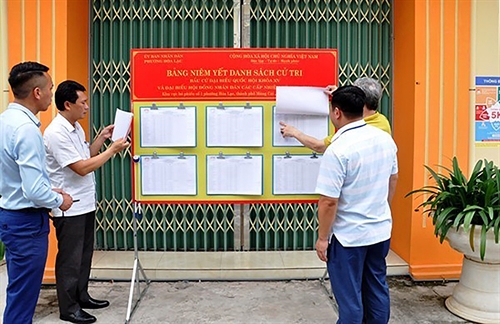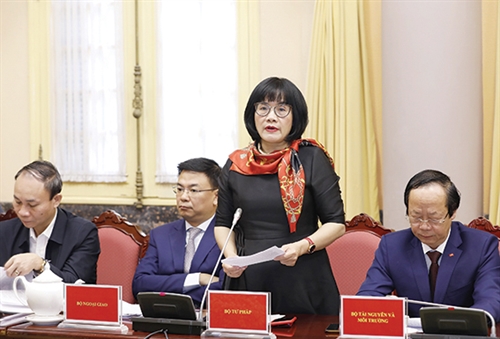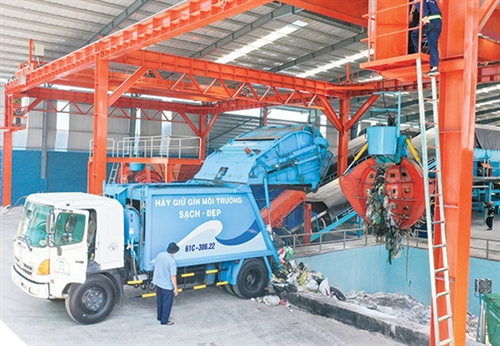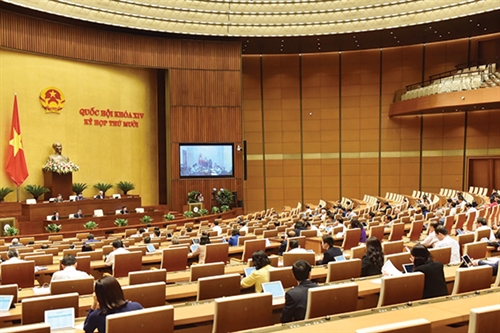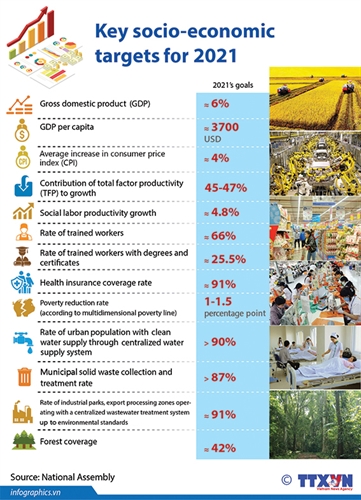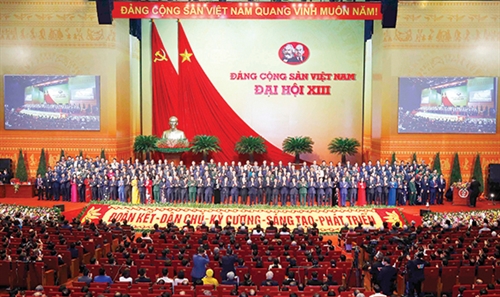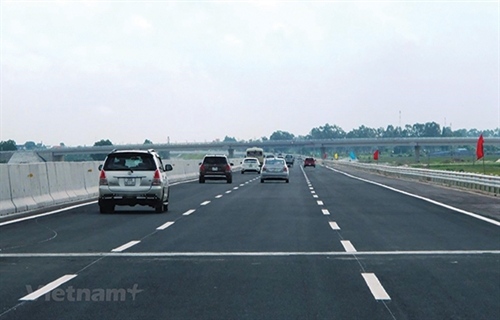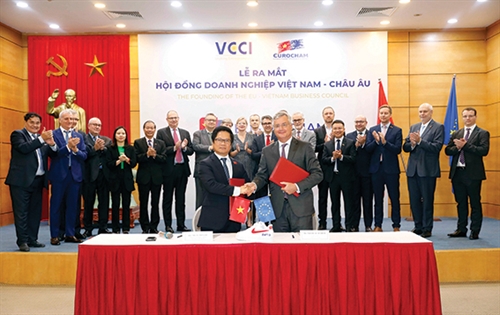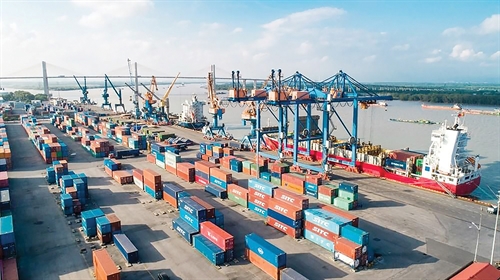Center for Community Support and Development Studies, Vietnam Fatherland Front Center for Research and Training, and United Nations Development Program
Background
The 2020 Vietnam Provincial Governance and Public Administration Performance Index (PAPI) Report,[1] released on April 14, 2021, shows an incremental improvement in national governance and public administration performance during the 2016-21 government term. The report, which assesses citizen experiences with national and local government performance in governance, public administration, and public service delivery, shows that the Control of Corruption in the Public Sector dimension has improved significantly each year since 2016. The dimension on Vertical Accountability Toward Citizens also steadily improved during the term, mainly because an increasing number of citizens have contacted local officials, in particular village heads and People’s Council deputies. Dimensions that show declines include Participation at Local Levels and Public Administrative Procedures.
This article is an excerpt from the 2020 PAPI report and presents key findings from the 2020 PAPI citizen surveys. It highlights three key and emerging themes. First, it summarizes findings at the national level over the 10 years of two government terms (2011-16 and 2016-21) through unchanged indicators in the Core PAPI as well as over 2019 and 2020 in the evolving PAPI. Second, it presents issues of the greatest concern for citizens in 2020 at the wake and impact of the COVID-19 pandemic throughout the year. And finally, it presents key findings from the provincial level to inform stakeholders of local governance performance.
Core PAPI performance trends: 2011-20
In order to be responsive to Vietnam’s governance and public administration reform efforts, PAPI indicators have been added, updated or dropped each year of the PAPI research program’s 12 years of existence. The research team therefore created the “Core PAPI” measure in 2018 to allow for an analysis of PAPI over time. This measure is composed of entirely of indicators that have remained unchanged between 2011 and 2020 and is used to assess the long-term trends in governance reforms highlighted below.
The analysis shows that while the aggregate PAPI score remained constant over the 2011-16 government term, the score has increased incrementally since 2016. In other words, there has been a small improvement at the national level in governance and public administration performance during the term. The progress was driven by 60 provinces that have all recorded positive average growth in their PAPI score since PAPI first began tracking provincial performance nationwide in 2011.
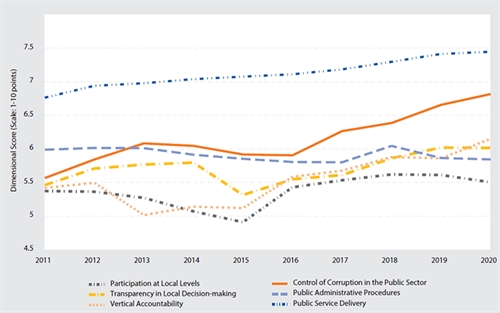 |
| Figure 1: Core PAPI Dimensions over Time, 2011-2020 |
Looking at the six core dimensions[2], shown in Figure 1, the strongest improvement is in Dimension 4: Control of Corruption in the Public Sector, which has improved significantly each year since 2016. Dimension 3: Vertical Accountability has also steadily improved during the 2016-20 term.
Dimensions that show declines include Dimension 1: Participation at Local Levels and Dimension 5: Public Administrative Procedures. For Dimension 1, the decline is largely attributed to a drop in voluntary contributions to local construction projects (more on this below). For Dimension 5, there seems to be a continued concern that public administrative procedures and services for citizens have not been streamlined and are not as user-friendly as those enjoyed by businesses.
Participation at Local Levels
As mentioned above, the Participation at Local Levels dimension declined in 2020. In particular, the sub-dimension on participation in voluntary contribution projects, which has increased each year since the new government term in 2016, declined substantially in 2020.
This likely reflects the fact that with the more challenging economic conditions as a result of the COVID-19 pandemic, local officials proposed fewer projects and were less likely to request contributions from citizens. While this leads to a lower overall score for the dimension, it may actually reflect responsive local governments that are less willing to burden citizens with projects they cannot afford. In this sense, the decline in Participation at Local Levels scores may not reflect a decline in governance quality, but instead, responsiveness to the economic plight of citizens in 2020.
Vertical Accountability Toward Citizens
On the Vertical Accountability Toward Citizens dimension, there has been a steady improvement since 2011 in the sub-dimension on interactions with local authorities. This measures the frequency of citizens’ contact with local authorities at different levels when they have concerns or lodge a complaint. It also measures how satisfied citizens are with local authorities’ response.
The findings show that there was a spike in 2020 in the number of citizens contacting local officials, in particular village heads and People’s Council deputies. From an average of about 23 percent of citizens contacting village heads in previous years, around 29 percent of respondents said they contacted their village heads in 2020 to seek a solution to a problem they had with their family, neighbors or local authorities. A similarly significant increase, although smaller, is seen in the percentage of citizens contacting People’s Council deputies.
Control of Corruption in the Public Sector
Another area of improvement during the 2016-21 government term is the control of corruption dimension. From the citizen perspective, the anti-corruption campaign driven by the Communist Party of Vietnam seems to have permeated local level officials. As a result, the percentage of respondents agreeing that bribes are necessary for state employment, public health-care services, land use rights certificates, fair treatment by primary school teachers and grant of construction permits continued the decline seen since 2016.
However, when it comes to citizen feedback on bribery based on respondents’ actual experience of accessing specific public services, the picture is less rosy. In 2020, more than 32 percent of respondents said they paid a bribe to obtain a land use rights certificate, compared to just over 22 percent in 2019. The divergence between perceptions of and the actual experience with bribes could be due to positive impressions amongst those who did not pay bribes, driven by anti-corruption campaigns. Alternatively, it is possible that the size of bribes has decreased, thereby creating more positive perceptions. Future evidence is needed to clarify this disparity.
In terms of the importance of personal connections for government positions, the 2020 PAPI Report shows a continued decline in this indicator, although the importance levels remain high. Across a range of positions, the number of citizens suggesting that connections were important in hiring for those positions is at its lowest since the survey began in 2011.
Governance and Public Administration Performance in 2020
This section presents findings from all eight dimensions that constitute the 2020 PAPI, including indicators that have evolved and changed over time. Figure 2 shows scores for all PAPI dimensions, including the two dimensions added in 2018, Dimension 7: Environmental Governance and Dimension 8: E-Governance.
Because some modification was made to Dimension 8 in 2020, a comparison over time of this dimension is not valid. Among the first seven dimensions, three (Participation at Local Levels, Public Service Delivery and Environmental Governance) declined slightly from 2019 to 2020, but not dramatically. Some improvement is seen in the Control of Corruption in the Public Sector dimension, as discussed in the previous section. Similarly, the Public Administrative Procedures dimension also improved a little. The two other dimensions (Transparency in Local Decision-making and Vertical Accountability) stayed static.
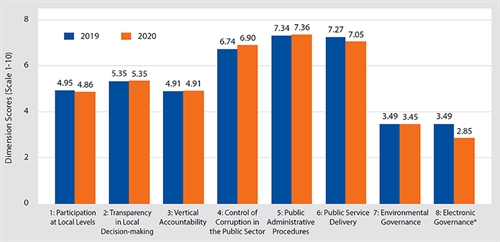 |
| Figure 2: PAPI Scores Across Eight Dimensions in 2019 and 2020 |
Further disaggregation by gender and ethnicity, men and women experienced similar levels of governance quality across several dimensions. However, in the Participation at Local Levels, Transparency in Local Decision-making, Vertical Accountability and E-Governance dimensions, there are disparities. Women are less likely to contact village officials and vote in village elections. They are also less likely to access the Internet. Each of these factors could hinder government responsiveness to women’s concerns and women’s ability to access government resources.
There are also differences in the experiences of the Kinh majority and ethnic minority groups. With the exception of the Environmental Governance dimension, respondents from ethnic minority groups reported a lower quality of provincial performance than Kinh respondents across all dimensions. The perceptions are particularly different in the Participation at Local Levels, Transparency in Local Decision-making and Vertical Accountability dimensions. This suggests that more should be done to involve minorities in policymaking and to facilitate contacts between public officials and members of minority groups.
Most concerning issues in 2020 and COVID-19 responses
Main Concerns in 2020
Similar to previous years, the 2020 PAPI Report looked in detail at what issues citizens are most concerned about. In the context of COVID-19, it is particularly interesting to look at what effect the pandemic has had on respondents’ assessment of areas of concern, their household economic situation and their perception of the national economy’s performance.
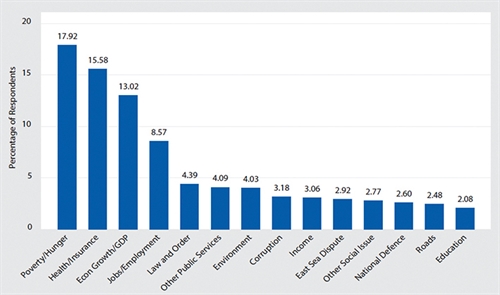 |
| Figure 3: Change in Issue of Greatest Concern, 2015-2020 |
As in each of the last five years, poverty and hunger remain the issues of greatest concern in 2020, mentioned by about 18 percent of respondents. As Figure 3 shows, concerns around health and health insurance ranked the second and emerged from around 2 percent in 2019 to 16 percent in 2020. Also, economic worries emerged, with economic growth and employment being two of the top-four concerns in 2020.
The 2020 increase in concern about economic growth is echoed by findings from other PAPI indicators. For example, PAPI asks citizens to evaluate their own household economic conditions. Since 2011 there has been an overall decline in those saying that their household economic situation is poor, and a steady increase in those saying their household economic situation is good. However, for the first time in 10 years that trend reversed in 2020. More respondents reported that their household economic situation was poor or very poor, while fewer respondents reported that their situation was good or very good. Similarly, there has been an increase from 14 percent to 18 percent of respondents who said their household economic situation worsened in 2020, compared to the last three years. Citizen confidence also shifted, with a record high proportion saying that the national economic situation was bad.
To follow up on the large share of citizens concerned about their household economy, the 2020 PAPI Report looks at the job and income losses reported by respondents.
Job losses were widespread across the country, with an average of 25 percent of respondents reporting that they or their family members lost jobs due to COVID-19. The losses were most severe in the central and north central coastal regions. Provinces such as Da Nang, Thua Thien-Hue and Quang Binh were hit especially hard, with reported job loss rates of more than 45 percent. These provinces were also badly affected by the second wave of COVID-19 that first hit Da Nang in July 2020.
In terms of income losses, the numbers were far higher. An average of 65 percent of households reported losing at least some income due to COVID-19. Again, the numbers were the highest in several central and north central coastal provinces, where more than 85 percent of respondents reported income losses. Provinces that avoided a severe COVID-19 impact on jobs and incomes were largely located in the north, near the border with China.
COVID-19: Government response and citizen compliance
The arrival of the COVID-19 pandemic and Vietnam’s effective containment of the crisis was the topical issue in 2020. Other research findings suggest that Vietnam’s successful response to date is connected to the country’s efforts in opening up for participatory governance over the past decade. Theoretically, good governance and participation are expected to drive trust, support and engagement from citizens, which in return increases compliance with laws and regulations.
The 2020 PAPI Report explores these issues. It looks at whether good governance, as measured by PAPI, led to increased compliance with government protocols. This includes a statistical analysis of the PAPI dimensions that might contribute to compliance. In theory, good local government performance in five PAPI dimensions could play a role by increasing citizen confidence in local governments. These dimensions include Participation at Local Levels, Transparency in Local Decision-making, Vertical Accountability Toward Citizens, Control of Corruption in the Public Sector, and E-Governance.
The analysis, while suggestive, indicates that three dimensions have a positive impact on citizen willingness to comply. As shown in Figure 4, a one-point increase in Dimension 2 score leads to about a 1.2 percent greater willingness to comply. For Dimension 4, a one-point increase in the score led to a 1.5 percent increase in the willingness to comply. The dimension with the largest impact is Dimension 1: Participation at Local Levels. A one-point increase in this dimension’s aggregate score leads to a 3.1 percent greater willingness to comply from citizens. This suggests that improvements in governance, particularly controlling corruption, lead to greater compliance with government measures.
In other words, governance improvements may be a key component in increasing trust in local governments. This is key, because many of the policies, such as quarantine and social distancing, require local implementation and public compliance.
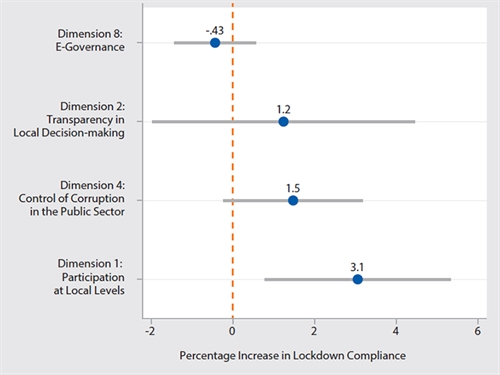 |
| Figure 4: Correlation between 2019 PAPI Dimensional Scores and Compliance with April 2020 Lockdown |
The analysis also shows that there is a correlation between the quality of governance and compliance. Areas with greater citizen participation and lower corruption, in particular, were likely to see greater public support for and compliance with strong COVID-19 preventive measures. This suggests that moving forward, improving governance will not only help Vietnam’s economic development, but also prove vital in case of unexpected emergency situations similar to COVID-19.
Key findings and implications
Signs of progress
This article summarizes the change in aggregated PAPI scores from 2011 to 2020, which demonstrates an incremental improvement in governance and public administration at the national level, especially during the 2016-20 government term. The progress was driven by 60 provinces that recorded positive average annual PAPI growth rates, ranging between 0.1 percent and 3.1 percent, since PAPI first began tracking provincial performance in all 63 provinces in 2011.
This improvement may have contributed to Vietnam’s response to the COVID-19 pandemic. There is evidence of a correlation between good governance and effective pandemic responses. One area that may have positively impacted Vietnam’s ability to respond to the pandemic was the better performance in citizen engagement and anti-corruption in 2019. For the fifth year in a row, in 2020, the Control of Corruption in the Public Sector indicators improved, which may further bolster trust in the Government.
Areas of concern
However, despite Vietnam’s successful containment of the COVID-19 pandemic, the report has demonstrated how the virus has impacted the country’s psyche. Concerns about health and economic growth surged, while concerns about poverty remained high. Overall household economic satisfaction in 2020 declined to its lowest level in the past five years, while the overall assessment of the national economy was the most pessimistic it has been in the last three years. Job losses due to the COVID-19 pandemic are likely to have contributed to this pessimism. While the overall response to COVID-19 has been good, the Government will nonetheless face economic and health challenges moving forward.
There are also clear differences in the types of issues men and women are most concerned about. This highlights the need for equitable representation in elected bodies following the 2021 elections of deputies to the National Assembly and People’s Councils.
Another area of concern is the continued high level of corruption. Despite the improvements, a large number of citizens still perceive bribery and personal connections to be a problem. This suggests that the Government should continue to focus on addressing corruption.
Public participation in local governance is also an area to watch. This indicator slipped in 2020 because citizens’ participation in voluntary contributions declined, possibly due to COVID-19. This will be an important area to focus on in 2021. To enable greater public participation, village heads should also play a more proactive role as interlocutors between citizens and the State. Therefore, efforts should be made to ensure that village head elections are competitive, and citizens are informed of the candidates.-
